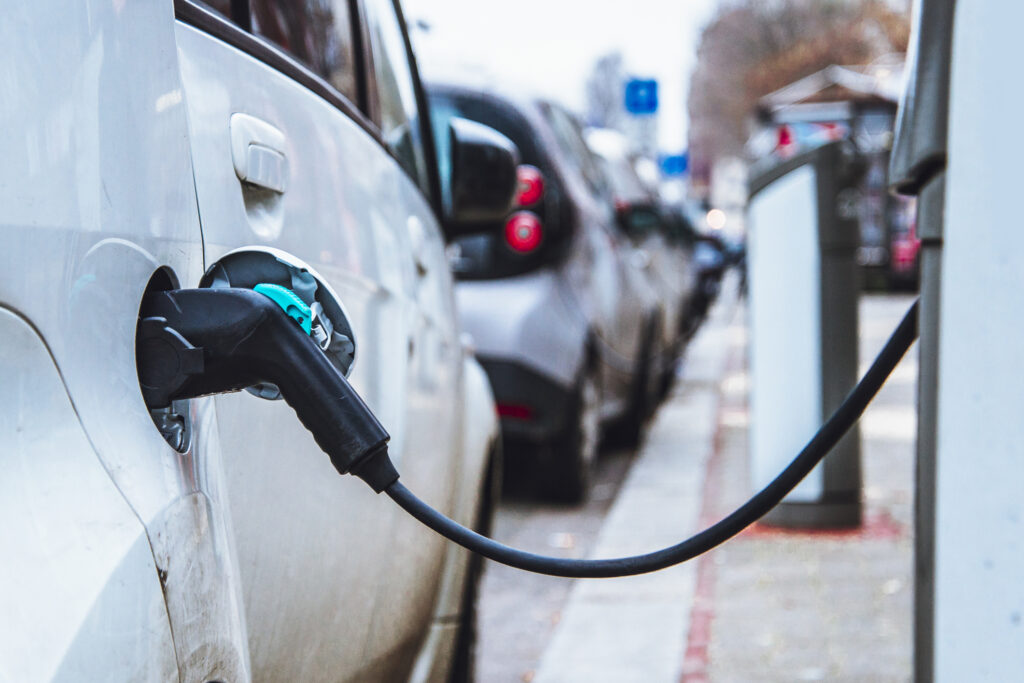Transport for London (TfL) has announced an £18 million electric vehicle (EV) scheme which will see hundreds of fast chargers deployed throughout the city by 2020 following grid enforcement work to accommodate the strain.
A range of project partners have already been appointed to a supplier framework and will move quickly with the aim of installing 75 charging points by the end of 2017. TfL plans to see the rapid charging network double by the end of the following year and grow to 300 by 2020.
TfL is working with the boroughs and investing £18million to unlock potential sites, including upgrading the power supply. It is also working with the relevant DNOs, UK Power Networks and SSE, to ensure that that rapid charging will not adversely impact on the grid.
A spokesperson from TfL suggested that where necessary power upgrades could include increasing capacity of existing substations or delivering new substations.
Locations of the chargers will be announced in the coming months, with the organisation evaluating the potential of ‘strategic hubs’ on its own arterial roads, and on private land including Heathrow airport and Shell service stations.
Shell revealed last year that it was examining the potential for introducing charge points across some parts of it UK retail network from early 2017 onwards, while a Modern Transport Bill due to be introduced to Parliament includes a minimum provision of charging infrastructure at motorway services.
The pricing structure of TfL’s charging network will be set by the five operators selected for the network, although it has said a maximum rate will be guaranteed for pay-as-you-go users for the first two years.
Drivers will be able to pay at the charge point using a credit or debit card, meaning it will not be compulsory to sign up to a membership or subscription scheme. It is not yet known if this price will be set by a unit price of electricity or by time spent at the charger.
Among the suppliers awarded contracts under the framework is Chargemaster, which will supply its Ultracharge units, capable of charging electric cars and taxis to 80% in 20 minutes.
Other partners on the scheme include Centrica’s electric vehicle services team, which will work as the principal contractor and principal designer. Evolt will supply charging equipment and service and maintenance, with ChargePoint Services providing back-up support including infrastructure financing, 24/7 customer service desk and customer billing.
The chargers are being brought forward to help London prepare for the decarbonisation of the cities taxis, which will need to be zero-emission capable by 1 January 2018. TfL has stated the charging network will be “vital” to the decarbonisation of London’s black cabs, which many charge points intended exclusively for the fleet.
Ben Plowden, TfL’s director of surface strategy and planning, said: “Urgent action needs to be taken to clean up London’s toxic air and rid the capital of the most polluting vehicles. An extensive rapid charging network is fundamental in helping drivers make the shift from fossil fuels to electric.
“This is particularly important for the taxi and private hire trades and the fleet and freight sector, which over the next few years will be looking to dramatically increase the number of journeys made with zero-exhaust emissions.”
The current number of fast chargers in London was recently dubbed ‘insufficient’ by Uber, which is preparing to deploy its own branded network to accommodate the 150 EVs it plans to introduce in the city.
Commenting on the news from TfL Shirley Rodrigues, deputy mayor for environment, said: “This investment in London’s infrastructure is great news for the capital. It will help to shape a new competitive market for rapid charging points, preparing for new taxis as we look to phase out diesel and make the move towards ultra-low emission vehicles to help clean up London’s toxic air.”





